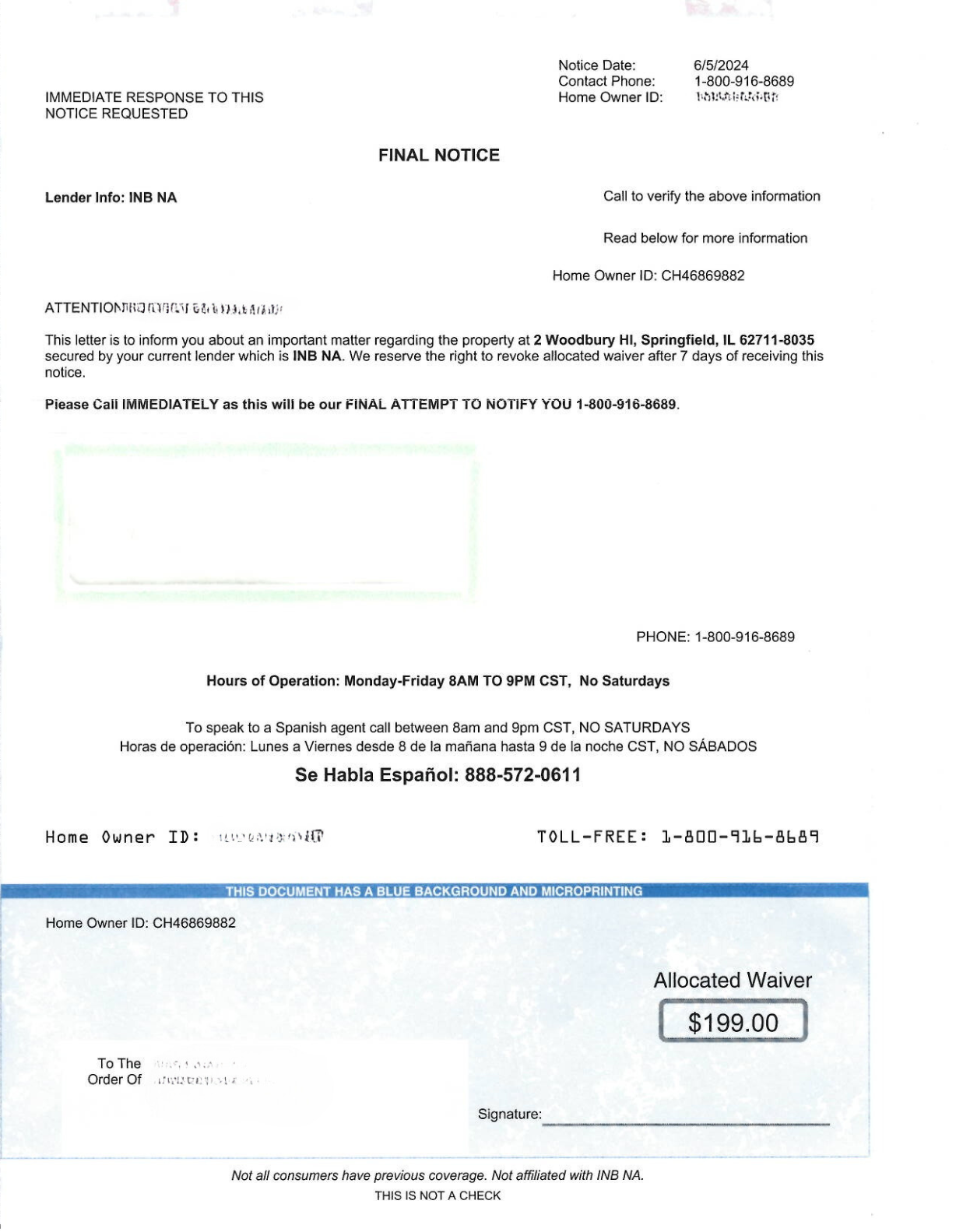It’s sometimes difficult to tell the difference between official mail and advertising. Some of the advertisements that are mailed to your home may make you think INB has shared your personal information. We want to set the record straight!
“You may get a piece of mail that looks official and contains information about your mortgage,” says Cayla Keyes, VP, Retail Sales Manager. “Because it has mortgage information, you think it’s from INB. In reality, it’s simply junk mail from another organization. And even though it looks official, you don’t need to do anything."
 The mail may look like this.
The mail may look like this.
It is important to remember that at INB, we will never sell your personal information. This information regarding your mortgage is all public and scammers can find it and use it. Greg Floyd, VP, Deposit Compliance Services, says, “I don’ t know why this information is even public.” He adds that INB can make every effort to shield our customers’ sensitive information, but we can’t control the information put out by the local county officials.
If you’ve received one of these official-looking, direct mail advertisements, look for the small print. You’ll see that the small print says that the ad is not affiliated with INB. Instead, this advertisement – often for home warranty services – is sent from a company that has gotten your information from county records. After we close a home loan, the information is recorded in the county you reside in and is a public record.
Here are some tips for you when receiving this junk mail:
- Never share your personal information.
- Do not send money to them.
- Contact companies sending you the mail and ask to be removed from the list.
- Shred any mail with personal information.
- Here are a few sources to try to opt out or slow down unsolicited mail:
There are many different services other than the ones provided; some may have fees.
Many people believe that there should be stricter regulations on unsolicited mail. As Cayla states, “These regulations would help protect consumers from the deceptive practices and reduce the likelihood of individuals being misled by mail that appears to come from their financial institution.” Nick Horton, VP, Commercial Lending, says, “I think that there should be some sort of opt out, so you have the option to no longer receive the mail.”
The most important thing to remember when receiving unsolicited mail is to never send money or personal information. As Greg says, “At INB we find this type of mail just as frustrating as our clients do.”